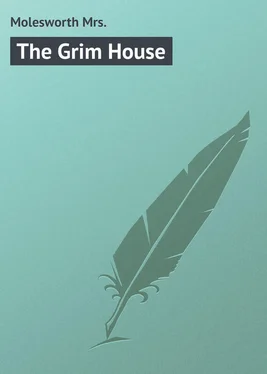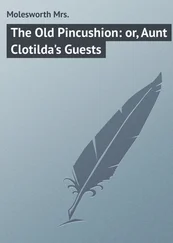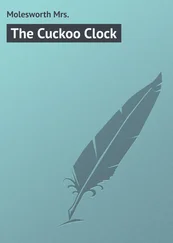Mrs. Molesworth - The Grim House
Здесь есть возможность читать онлайн «Mrs. Molesworth - The Grim House» — ознакомительный отрывок электронной книги совершенно бесплатно, а после прочтения отрывка купить полную версию. В некоторых случаях можно слушать аудио, скачать через торрент в формате fb2 и присутствует краткое содержание. Жанр: foreign_prose, на английском языке. Описание произведения, (предисловие) а так же отзывы посетителей доступны на портале библиотеки ЛибКат.
- Название:The Grim House
- Автор:
- Жанр:
- Год:неизвестен
- ISBN:нет данных
- Рейтинг книги:3 / 5. Голосов: 1
-
Избранное:Добавить в избранное
- Отзывы:
-
Ваша оценка:
- 60
- 1
- 2
- 3
- 4
- 5
The Grim House: краткое содержание, описание и аннотация
Предлагаем к чтению аннотацию, описание, краткое содержание или предисловие (зависит от того, что написал сам автор книги «The Grim House»). Если вы не нашли необходимую информацию о книге — напишите в комментариях, мы постараемся отыскать её.
The Grim House — читать онлайн ознакомительный отрывок
Ниже представлен текст книги, разбитый по страницам. Система сохранения места последней прочитанной страницы, позволяет с удобством читать онлайн бесплатно книгу «The Grim House», без необходимости каждый раз заново искать на чём Вы остановились. Поставьте закладку, и сможете в любой момент перейти на страницу, на которой закончили чтение.
Интервал:
Закладка:
“And have none of their servants ever told over anything?”
“There seems nothing to tell,” said Isabel. “It is just a very quiet regular house. Things seem to go on from year’s end to year’s end just the same.”
“It is too extraordinary,” I exclaimed, “and dreadfully sad.”
“And it will grow sadder and sadder as time passes,” Isabel replied. “They can’t all live for ever, and when it comes to the last one left there alone! It makes one shiver to think of it.”
“But perhaps,” I said, “the secret doesn’t really concern them all? Perhaps if the eldest brother died the others would be free? They may in some way be sacrificed for him?”
But Isabel shook her head.
“I don’t think so,” she said. “The only strong feeling I have about it is that they are all suffering together through some one else’s fault. They are so devoted to each other – there is never a breath of any discussion or quarrelling, and that would have been heard of through the servants.”
This was the last talk we had on the subject before the time came for our new friends to turn homewards. We parted with great regrets on both sides, and many a wish on ours – on mine, at least – that we, like them, were bound for England on leaving Weissbad; but that was not our case. Father was more determined than ever that the winter must be spent in the South, though we had begun to hope that the great improvement in our invalids already achieved would have brought about his consent to our all going home again. We quitted Weissbad a few days after the Wynyards, escorted by father, who left us again as soon as he had seen us installed for the second time – this time at one of the smaller, and in those days less-frequented, winter places on the Riviera.
The four or five months we spent there passed uneventfully – much as former winters had done in the years when sojourning in the South was a regular institution for us. Nothing so interesting as our meeting with the Wynyards at Weissbad happened to us; and indeed, but for one incident, trivial and scarcely noticed at the time, but which after-occurrences recalled to my memory, I should have no occasion to linger on our stay in the South.
The incident was the following.
The hotel at which we were staying was a small one, though comfortably managed on almost entirely English rules, for the visitors, many of whom came there year after year, were rarely of any other nationality than our own. It was therefore impossible, and would have savoured of churlishness and affectation, to keep ourselves apart, or to be on other terms than those of friendly acquaintanceship with our fellow-guests. None of them, however, were very interesting. On the whole, those whom we “took to” the most were a mother and two sons – quite young fellows, one about Moore’s age, the other a year or two older. It was for the sake of the elder one that they were spending the winter abroad, as a very severe illness had left him much in the state that we had dreaded for Moore himself, and the similarity of the circumstances naturally induced sympathy between us.
It was Moore, of course, who first made friends, beginning with the younger boy, and Mrs Payne, the mother, speedily followed it up by thanking us for some little kindness we happened to show her son.
“It is so dull for him here,” she said, “as his brother is not able to do much. I almost wish we had left him at home at school. But it would have been dreary for him at Christmas – his father and my eldest son are such terribly busy people. Lawyers generally are, I suppose – and we hoped that Leo would have some chance of improving his French here, as he is going to a public school at Easter.”
Mother confided to her in return Moore’s prospects. Mrs Payne was a gentle, rather childish woman, of the type whom very clever men are often credited with preferring as wives, and we soon came to the conclusion that the old saying was exemplified in the present case. The sons, the elder one in particular, were decidedly intelligent above the average, and their admiration for their father and elder brother fully equalled that of their mother. Rupert, the invalid, took a great fancy to me, and before long I was the recipient of many of his secret hopes and aspirations, the most intense of which was that he should become a novelist.
“You see, Miss Fitzmaurice,” he said to me one day, “I have already, and would have increasingly, material ready to my hand. You don’t know what extraordinary stories lawyers come across! Many of them there is no breach of confidence in repeating, and my brother Clarence has told me bits of others quite as strange as any fiction.”
“Or stranger,” I remarked, for at that moment Isabel’s description of the Grim House and its inhabitants came into my mind.
“Yes,” said Rupert, “you are right. Some stories are ‘too strange not to be true.’ And you see I could piece bits together, so that nobody could possibly recognise anything. My father knows one story which he says he can’t tell us – I believe he says so partly to tantalise us – which he declares would make a first-rate sensational novel.”
“And will he never be able to tell it to you?” I inquired, more for the sake of seeming interested in poor Rupert’s conversation than because I cared to hear. The young fellow was rather of the “old-fashioned” order; there was a certain quaintness in his way of speaking which was not without its charm, though now and then he tired my patience a little. He was so unlike anything of “boy” kind I had ever come across.
“I don’t know,” he said gravely. “ Perhaps , if all the people it concerns were dead. But they are none of them very old; some, I believe, still almost young.”
“Then you do know something about it, after all,” I replied, my interest increasing.
“ Scarcely anything,” said Rupert; “only this much, that it is a secret which affects a whole family, and that my father and one other are the only beings who are in their confidence. He has told Clarence and me that some day he may have to tell us – when he gets very old, or if his memory were failing. Two outsiders must know it.”
“And yet it affects a whole family,” I repeated. “They must be a very reticent set of people.”
“More than that – it has darkened the life of a whole family; that, I think, was my father’s exact expression,” said Rupert eagerly. “I often and often think about it, and wonder what the secret can be.”
As he said the words there suddenly flashed across my mind the remembrance of an almost similar exclamation that I had recently heard. Yes – it was Isabel speaking of the Grim House and its inhabitants. What a strange coincidence it would be if the family Rupert was speaking of should be the same people! Too strange to be possible, I thought, for I have greater belief, now that I have seen more of life, in coincidences than I had then.
But the idea did not remain in my mind. I dismissed it as too wildly improbable, and Rupert talked on about his contemplated works of fiction and their “plots” in so interesting a way, that the “stranger than fiction” story I had come across was for the time completely forgotten by me.
Chapter Three.
Millflowers
Our “banishment,” as I sometimes, in a rather discontented mood, called our stay abroad, came to an end rather sooner than we had expected, thanks to an unusually early and genial spring, which made even father think that it would be safe for mother to return to England. Moore, by this time, was in rollicking health and quite fit for school. And to me our home-going was considerably damped by the knowledge that it meant parting with my last playfellow.
Читать дальшеИнтервал:
Закладка:
Похожие книги на «The Grim House»
Представляем Вашему вниманию похожие книги на «The Grim House» списком для выбора. Мы отобрали схожую по названию и смыслу литературу в надежде предоставить читателям больше вариантов отыскать новые, интересные, ещё непрочитанные произведения.
Обсуждение, отзывы о книге «The Grim House» и просто собственные мнения читателей. Оставьте ваши комментарии, напишите, что Вы думаете о произведении, его смысле или главных героях. Укажите что конкретно понравилось, а что нет, и почему Вы так считаете.












